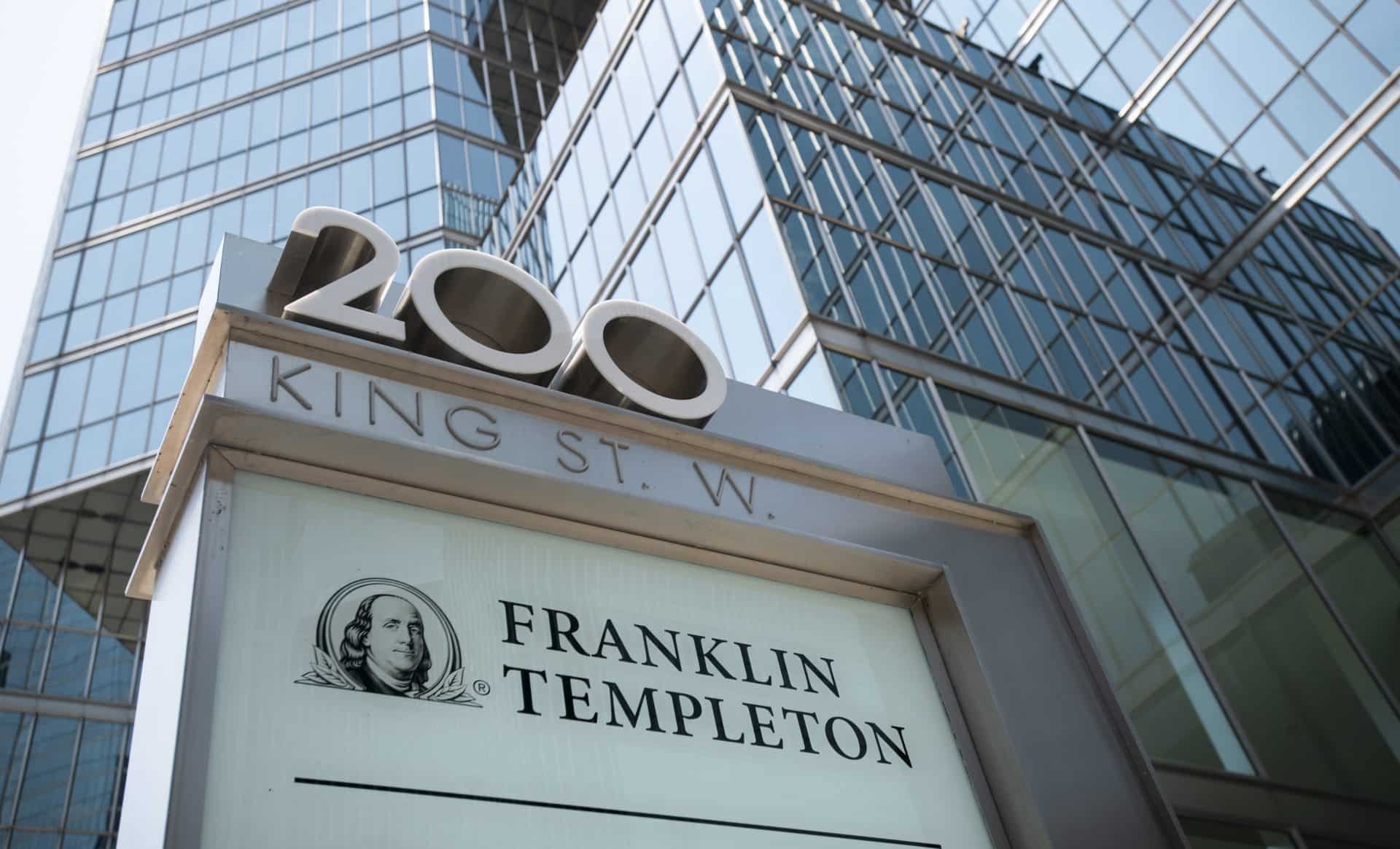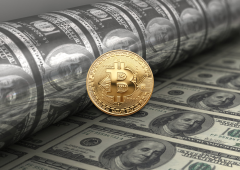Franklin Templeton Expands Tokenized Fund to Solana, Eyes Future ETF
13.02.2025 8:00 1 min. read Alexander Zdravkov
Franklin Templeton has expanded its blockchain initiatives by launching its tokenized money market fund, FOBXX, on Solana.
This move underscores the asset manager’s confidence in Solana’s infrastructure, citing its speed, security, and resilience.
FOBXX, designed to maintain a stable $1 share price, is already accessible on Ethereum, Base, Polygon, Avalanche, Aptos, and Arbitrum, having initially launched on Stellar four years ago. The fund primarily invests in U.S. government securities, cash, and repurchase agreements backed by government assets. Since its 2021 debut, it has grown to a $594 million market cap, ranking behind BlackRock’s BUIDL and Hashnote’s USYC.
Franklin Templeton’s decision to integrate with Solana coincides with its recent filing in Delaware for a Solana ETF, suggesting a potential SEC filing in the near future. The firm has previously expressed strong confidence in Solana, predicting it could become the third-largest cryptocurrency after Bitcoin and Ethereum.
Meanwhile, Anthony Scaramucci has also voiced bullish sentiments on Solana, emphasizing its low fees and fast transaction speeds. He believes Solana will lead the tokenization revolution, particularly as traditional assets like stocks and bonds transition to blockchain.
The tokenization sector is poised for massive growth, with estimates from BCG, McKinsey, and Brevan Howard pointing to a multitrillion-dollar opportunity. BlackRock CEO Larry Fink has echoed this sentiment, describing tokenization as the future of financial markets.
-
1
Binance Could Introduce Golden Visa Option for BNB Investors Inspired by TON
07.07.2025 8:00 1 min. read -
2
Weekly Recap: Key Shifts and Milestones Across the Crypto Ecosystem
06.07.2025 17:00 4 min. read -
3
Trump Imposes 50% Tariff on Brazil: Political Tensions and Censorship at the Center
10.07.2025 7:00 2 min. read -
4
USA Imposes Tariffs on Multiple Countries: How the Crypto Market Could React
08.07.2025 8:30 2 min. read -
5
Key Crypto Events to Watch in the Next Months
20.07.2025 22:00 2 min. read
Bitwise CIO: The Four-Year Crypto Cycle is Breaking Down
The classic four-year crypto market cycle—long driven by Bitcoin halvings and boom-bust investor behavior—is losing relevance, according to Bitwise CIO Matt Hougan.
Strategy to Raise Another $2.47 Billion for Bitcoin Acquisition
Strategy the company formerly known as MicroStrategy, has announced the pricing of a new $2.47 billion capital raise through its initial public offering of Variable Rate Series A Perpetual Stretch Preferred Stock (STRC).
AI Becomes Gen Z’s Secret Weapon for Crypto Trading
A new report from MEXC reveals a striking generational shift in crypto trading behavior: Gen Z traders are rapidly embracing AI tools as core components of their strategy.
3 key Reasons Behind Today’s Crypto Market Drop
The crypto market shed 1.02% in the past 24 hours, led by a sharp Bitcoin drop and fading altcoin interest.
-
1
Binance Could Introduce Golden Visa Option for BNB Investors Inspired by TON
07.07.2025 8:00 1 min. read -
2
Weekly Recap: Key Shifts and Milestones Across the Crypto Ecosystem
06.07.2025 17:00 4 min. read -
3
Trump Imposes 50% Tariff on Brazil: Political Tensions and Censorship at the Center
10.07.2025 7:00 2 min. read -
4
USA Imposes Tariffs on Multiple Countries: How the Crypto Market Could React
08.07.2025 8:30 2 min. read -
5
Key Crypto Events to Watch in the Next Months
20.07.2025 22:00 2 min. read


